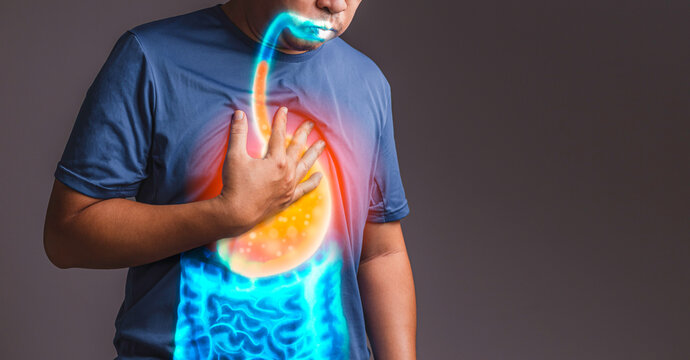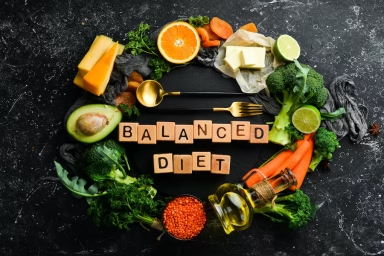- Home
- About Us
- Services
- Treatments
- Acid Reflux
- Allergic Rhinitis
- Alcoholic Fatty Liver
- Ankylosing Spondylitis
- Anxiety / Stress
- Arthritis
- Asthma
- Cervical Spondylitis
- Celiac Infection
- Colitis
- Constipation
- Dermatitis
- Detox Programme
- Diabetes (Madhumeha)
- Hair Fall
- Headache
- Hormonal Imbalance
- Hypertension
- Insomnia
- Irritable Bowel Syndrome
- Lungs Disease
- Migraine
- Neurological Disorder
- Non Alcoholic Fatty Liver
- Obesity Management
- Pain Management
- PCOD
- PCOS
- Sciatica Pain
- Sinusitis
- Skin Disorder
- Slip Disc
- Stress Management
- Thyroid
- Weight Management
- Techno-Ayurveda
- Media
- Blog
- Contact Us

Acid Reflux
Understanding Acid Reflux
Acid reflux is a common digestive condition where stomach acid or bile flows backward into the esophagus, causing discomfort and other symptoms. This happens when the lower esophageal sphincter (LES), a muscle that acts as a valve between the esophagus and stomach, weakens or relaxes at the wrong time, allowing stomach contents to escape into the esophagus. While occasional acid reflux is a normal phenomenon, frequent acid reflux can lead to a more serious condition known as gastroesophageal reflux disease (GERD).
Symptoms of Acid Reflux
1. Burning Sensation
2. Sore Throat
3. Backwash
4. Noncardiac Chest Pain
5. Asthma
Common Causes of Acid Reflux

Dietary Factors
Dietary factors such as spicy foods, citrus, chocolate, caffeine, alcohol, and fatty meals can trigger acid reflux. These foods may relax the lower esophageal sphincter, allowing stomach acid to flow back into the esophagus, causing discomfort and heartburn.

Hiatal Hernia
A hiatal hernia occurs when part of the stomach pushes through the diaphragm into the chest cavity, weakening the lower esophageal sphincter (LES). This can lead to acid reflux, as the LES may no longer prevent stomach acid from rising.

Obesity
Obesity can contribute to acid reflux by increasing abdominal pressure, which forces stomach acid into the esophagus. Excess weight, particularly around the abdomen, weakens the lower esophageal sphincter, leading to frequent heartburn, discomfort, and potential long-term digestive issues.

Pregnancy
During pregnancy, hormonal changes and increased abdominal pressure from the growing uterus can lead to acid reflux. The hormone progesterone relaxes the lower esophageal sphincter, while physical pressure can push stomach acid into the esophagus, causing heartburn and discomfort.

Certain Medications
Certain medications, such as pain relievers (NSAIDs), blood pressure medications, and antidepressants, can relax the lower esophageal sphincter or irritate the stomach lining, increasing the risk of acid reflux. These drugs may allow stomach acid to flow into the esophagus.
Panchakarma Ayurvedic Treatment for Acid Reflux
Panchakarma is a holistic, detoxifying treatment in Ayurveda, the ancient system of medicine from India. It is a therapeutic approach designed to cleanse the body of accumulated toxins, restore balance, and rejuvenate the mind and body. In Ayurveda, acid reflux, also known as Amlapitta, is considered an imbalance in the digestive fire or Agni, which is responsible for proper digestion. According to Ayurvedic principles, acid reflux occurs when the digestive fire is either too strong or too weak, causing improper digestion of food. The imbalance leads to the production of excess acid that flows backward into the esophagus, causing the discomfort associated with acid reflux.
Common Panchakarma Treatments for Acid Reflux
Several specific Panchakarma treatments are commonly recommended for acid reflux:
Virechana (Purgation): Virechana involves the administration of herbal laxatives to cleanse the liver and digestive system. For individuals with acid reflux, this treatment can help eliminate excess bile and toxins from the body, which are often implicated in acid reflux symptoms. By clearing the digestive tract, Virechana can reduce the acidity in the stomach and prevent reflux.
Vamana (Therapeutic Vomiting): Vamana helps to expel toxins from the upper digestive system and can be beneficial when the excess acid is accumulating in the stomach. It is particularly helpful for individuals who suffer from the burning sensation of heartburn and regurgitation, as it cleanses the stomach and esophagus.
Basti (Enema Therapy): Enemas are used to cleanse the lower gastrointestinal tract. Basti therapy helps remove accumulated toxins and balance the Vata dosha, which governs movement and digestion. This therapy promotes proper digestion, reduces bloating, and can be particularly effective in reducing symptoms of acid reflux related to sluggish digestion.
Herbal Treatments and Diet: Along with Panchakarma treatments, Ayurveda recommends specific herbal remedies and dietary changes to treat acid reflux. Herbs such as licorice, ginger, amla (Indian gooseberry), and Turmeric are commonly used to soothe the digestive system, reduce inflammation, and balance stomach acid levels. A diet that includes easily digestible, cooling, and alkaline foods (like rice, vegetables, and cooked fruits) is often recommended to support the healing process.
Benefits of Panchakarma for Acid Reflux
- Reduces the Frequency and Intensity of Symptoms: Panchakarma treatments help reduce the frequency of acid reflux episodes and alleviate common symptoms like heartburn, regurgitation, and chest discomfort.
- Enhances Digestion: By improving digestion, Panchakarma ensures that food is properly processed, reducing the likelihood of acid production and reflux.
- Calms Inflammation: Ayurvedic therapies target inflammation in the esophagus and stomach lining, which is often a result of chronic acid reflux.
- Promotes Detoxification: The detoxification process helps to clear accumulated toxins from the digestive system, improving overall health.
- Restores Balance: By addressing the underlying causes of acid reflux, such as imbalances in the digestive fire and doshas, Panchakarma helps restore balance in the body.
FAQs of Acid Reflux
Acid reflux occurs when stomach acid flows back into the esophagus, causing symptoms like heartburn, regurgitation, and chest discomfort.
Common symptoms include heartburn, sour taste in the mouth, chest pain, difficulty swallowing, and persistent cough.
Treatment options include lifestyle changes, medications like antacids or proton pump inhibitors (PPIs), and, in severe cases, surgery.
